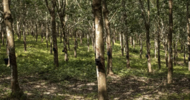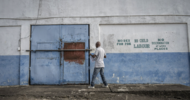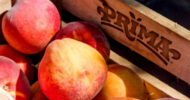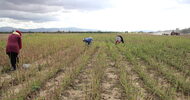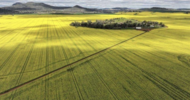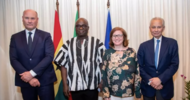Reuters | 23 November 2010
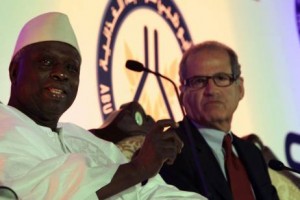
The UAE and Saudi Arabia will continue to invest in acquiring farmland abroad as part of their strategy to secure food supplies, officials from the two Gulf states said on Tuesday.
Gulf states suffered when international food prices spiked to record levels in 2008, forcing up their import bills. They have since sought to lease and buy farmland in developing nations to improve security of food supplies.
"In Saudi we have given a priority to water security and therefore are phasing out the production of water-intensive crops and as part our security strategy we are encouraging the private sector to invest in agriculture abroad," Fahad Balghunaim, the kingdom's agriculture minister, told reporters on the sidelines of an industry event in Abu Dhabi.
He added: "We don't have one place or region we are targeting for these land leases, I can promise you that we will be everywhere in the world."
Click here to find out more! In April, Riyadh set up a company with a capital of $800 million to invest in farmland abroad, focusing on wheat, rice, sugar and soybeans. State-owned Saudi Industrial Development Fund is granting financing facilities to firms exploring agricultural investments abroad. Several Saudi firms also launched farmland investment abroad ranging from Indonesia to Ethiopia. The UAE is also leasing land abroad as well as increasing investment to promote local agriculture. "It's a top priority for us right now to secure food supplies in the UAE and we are looking at both investing abroad and also new technology which can help us increase our production locally," UAE's Environment and Water Minister Rashid Ahmed bin Fahd told Reuters on the sidelines of the event. Foreign land acquisitions have provoked opposition from some farmers in developing nations. In Madagascar, a move by South Korea's Daewoo Logistics to lease an area of land larger than Qatar to grow food for export contributed to the unpopularity of former leader Marc Ravalomanana, who was toppled in March last year. Buying land in countries that can barely feed themselves and exporting produce from them has exposed investors to popular unrest and political disapproval in their target countries in the developing world. Jacques Diouf, director general of the UN's Food and Agriculture Organization (FAO) said: "Hopefully by the end of next year we will have approved international guidelines by which for the leasing of farmland so we can have a win-win situation." A hike in food prices this year is mainly due to a worsening outlook for crops, especially cereals production which fell 2 percent this year, he said. Gulf Arab states agreed on Tuesday to work more closely to secure food supplies by setting up national seed banks and a regional system for early alerts on food and feed.(Reuters)





